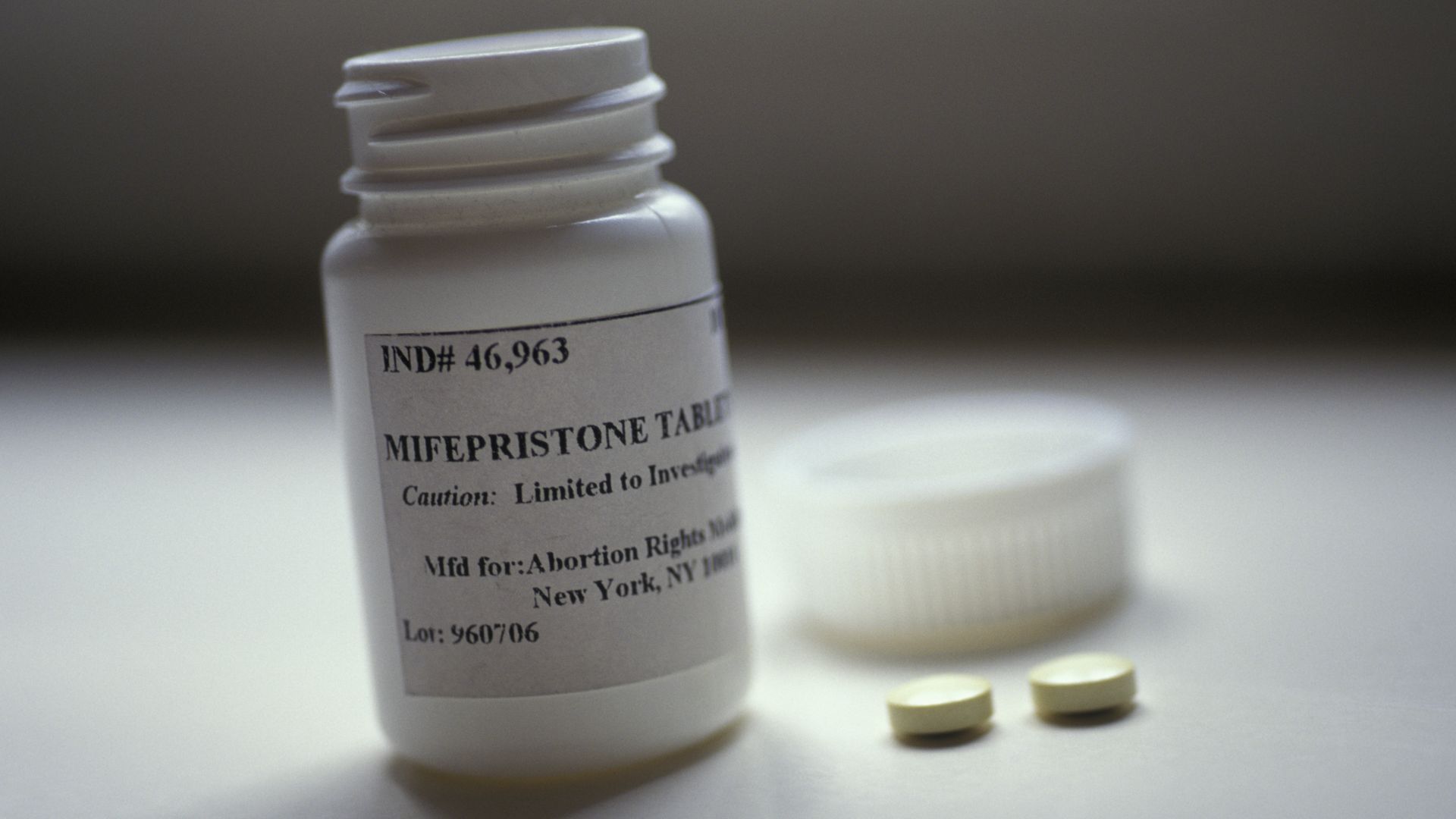| |
| |
| |
| Presented By HCA Healthcare |
| |
| Axios Vitals |
| By Tina Reed · Mar 16, 2023 |
| Good morning, Vitals readers. Today's newsletter is 1,085 words or a 4-minute read. Situational awareness: Advisers for the Medicare program are calling for doctors to get a serious raise next year, Axios' Maya Goldman writes. - In their semi-annual report to Congress yesterday, they also recommended increasing hospital payments and decreasing home health rates. Medicaid advisors also released their own report to lawmakers.
|
| |
| |
| 1 big thing: Hill Democrats search for the next big health care target |
 |
|
| Illustration: Gabriella Turrisi/Axios |
| |
| First, it was passing the Affordable Care Act. Then, defending it. Then it was allowing Medicare to negotiate drug prices. With those big boxes checked, it's not clear what congressional Democrats' next big health care goal is, Axios' Peter Sullivan writes. Why it matters: Taking too long to agree on the next big thing could create a policy vacuum heading into a presidential election cycle — and deprive lawmakers and outside groups of a target to aim for. What they're saying: "There's a lot of good ideas out there, but this often happens, once you get a big victory you often need a little time to form consensus on what's next," Sen. Chris Murphy (D-Conn.) told Axios. Between the lines: Senate Finance Chairman Ron Wyden (D-Ore.) pointed to President Biden's call to expand drug price negotiations, as well as work on mental health issues. - Two groups that advise Democrats — the Center for American Progress and Families USA — pointed to hospital costs.
- "Talking about site-neutral payment feels really obscure until you are like, 'Wait a minute, I'm now charged more because the hospital bought up my old doctor's office?" said Jen Taylor, senior director of federal relations at Families USA.
- And while there was a time when it seemed all Democrats could do was argue about Medicare for All, that focus on coverage — as opposed to costs — faded even before Republicans won the House.
Of course, Sen. Bernie Sanders (I-Vt.) is now the chairman of the HELP Committee. But even he isn't putting a ton of emphasis on Medicare for All these days, instead using his bully pulpit on issues like the price of the Moderna vaccine and insulin. - "We don't have the votes," he told the New York Times.
A version of this story was published first on Axios Pro. Get news like this by subscribing. Use code POLICY100 which gives you $100 off. |
    |
| |
| |
| 2. Abortion pill ruling looms |
 |
|
| Photo: James Leynse/Corbis via Getty Images |
| |
| A federal judge in Texas is poised to rule "as soon as possible" on whether to suspend the FDA's approval of a widely-used abortion pill and potentially reverse the agency's authority on drug regulation for the first time, Axios' Oriana Gonzalez writes. Why it matters: Legal experts fear that if District Judge Matthew Kacsmaryk orders the FDA to temporarily withdraw its approval of mifepristone, others will challenge FDA-approved treatments that they disagree with. - The Trump appointee, who openly opposed Roe v. Wade, heard arguments on Wednesday from the parties involved in the case challenging the approval and said he would issue a ruling "as soon as possible."
State of play: A ruling "will have very significant implications for the drug approval process in this country as we know it," Lorie Chaiten, a senior staff attorney with the ACLU, told Axios last month. - "It would say that a single judge sitting in Amarillo, Texas, gets to define drug approval policy and abortion policy for the entire country," she said.
- Additionally, "[M]anufacturers may be reluctant to bring to market certain new drugs or treatments if they are concerned that a court ruling could block the approval of the drug in the future," according to the Kaiser Family Foundation.
Catch up quick: There is another lawsuit brought by state Democratic attorneys general challenging the FDA's safety restrictions on mifepristone in an effort to make the drug more easily accessible. - Two other lawsuits have been brought in North Carolina and West Virginia that are looking to answer the question on whether states can regulate or restrict FDA-approved drugs.
Go deeper. |
    |
| |
| |
| 3. CMS lays out Medicare drug negotiations plan |
 |
|
| Illustration: Rae Cook/Axios |
| |
| The Biden administration on Wednesday began fleshing out how it will implement drug-pricing provisions in the Inflation Reduction Act, including a multi-step negotiation process for selected Medicare drugs starting next year, Axios' Adriel Bettelheim writes. Why it matters: The law gave the administration discretion to work out details of the first-ever drug price talks, which will initially cover 10 Part D drugs for which there's no generic competition. Details: The guidance envisions CMS accepting one counteroffer from the manufacturer and holding one to three meetings with the company before settling on a "final maximum fair price offer." Negotiations would end by Aug. 1, 2024. - The negotiated price would become effective in 2026. Companies that don't comply will be hit by an excise tax.
The administration earlier on Wednesday identified 27 drugs on Medicare Part B that will trigger penalties on their manufacturers under a separate part of the IRA for having prices that rose faster than inflation. Those inflation rebates on will take effect in April. The other side: "Despite the rhetoric we always hear, the administration's own report shows that prices for the vast majority of Part B medicines are not skyrocketing," said Brian Newell, spokesperson for the big drug industry trade group PhRMA. |
    |
| |
| |
| A message from HCA Healthcare |
| Developing a diverse pipeline of health care leaders |
| |
 |
| |
| In 2022, HCA Healthcare announced $5.25 million in gifts to Historically Black Colleges and Universities and Hispanic-Serving Institutions to train future health care professionals. The reason: We believe our colleagues should reflect the diversity of our communities. Explore how We Show Up. |
| |
| |
| 4. 15M could get dropped from Medicaid |
 |
|
| Illustration: Lindsey Bailey/Axios |
| |
| About 15 million people may drop off Medicaid rolls in the coming year as states redetermine program eligibility with the end of the COVID-19 public health emergency, a Kaiser Family Foundation survey of state officials found, Axios' Arielle Dreher writes. The big picture: States that were able to report projected coverage losses estimate that about 18% of Medicaid recipients will be disenrolled after program rolls surged during the pandemic. - More than 91 million adults and children were covered by Medicaid or CHIP as of November. Eligibility redeterminations will start next month, prompted by the end of policies that guaranteed continuous coverage during the health emergency.
The intrigue: Alaska, Minnesota and Missouri offer no way for people to renew Medicaid coverage online, per the KFF survey. |
    |
| |
| |
| 5. Medicaid for food's next destination |
 |
|
| Illustration: Shoshana Gordon/Axios |
| |
| A handful of states have pending waiver requests to tap Medicaid funds for food in pilot programs, Axios' Ayurella Horn-Muller writes. Why it matters: This signals growing support for "food is medicine" interventions that are being echoed at both federal and state levels, despite mixed pilot reviews. The latest: New Mexico, Washington, New York, New Jersey, Delaware and Maine have pending requests for waivers that would allow them to tap funds for nutrition support, according to KFF's waiver tracker. Our thought bubble: The interest among states for these programs is expected to grow, particularly following the end of COVID-era SNAP emergency allotments benefits. |
    |
| |
| |
| 6. Catch up quick |
| 👀 New health research agency ARPA-H starts search for two hub locations and announces new D.C. office. (Wall Street Journal) 💰 Colorado moves to make abortions and contraception free. (Axios) 👉 7 Virginia deputies charged in death of man at mental health facility. (Axios) |
    |
| |
| |
| A message from HCA Healthcare |
| Using research-based programs to improve patient outcomes |
| |
 |
| |
| The idea: We use a patient-centered approach to surgical recovery. Patients play an active role in managing their care and recovery plan with our Enhanced Surgical Recovery program. Interventions before, during and after surgeries help improve outcomes and decrease opioid usage. Learn more. |
| |
| Have a news tip? Just reply to this email. Did someone forward this email? Subscribe here. Thanks for reading, and thanks to senior health care editor Adriel Bettelheim and senior copy editor Bryan McBournie for the edits. |
 | | Dive deeper into the future of health care | | |
No comments